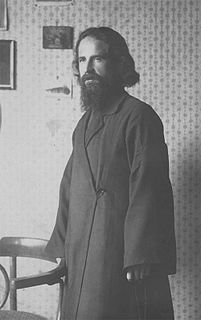A Quote by Teresa of Avila
True perfection consists in the love of God and our neighbour, and the better we keep both these commandments, the more perfect we shall be.
Related Quotes
IF WE AND OUR POSTERITY SHALL BE TRUE TO THE CHRISTIAN RELIGION, IF WE AND THEY SHALL LIVE ALWAYS IN THE FEAR OF GOD AND SHALL RESPECT HIS COMMANDMENTS, IF WE AND THEY SHALL MAINTAIN JUST MORAL SENTIMENTS AND SUCH CONSCIENTIOUS CONVICTIONS OF DUTY AS SHALL CONTROL THE HEART AND LIFE, WE MAY HAVE THE HIGHEST HOPES OF THE FUTURE FORTUNES OF OUR COUNTRY. OUR COUNTRY WILL GO ON PROSPERING.
Our willingness to repent shows our gratitude for God's gift and for the Savior's love and sacrifice on our behalf. Commandments and priesthood covenants provide a test of faith, obedience, and love for God and Jesus Christ, but even more importantly, they offer an opportunity to experience love from God and to receive a full measure of joy both in this life and in the life to come.
For us Christians, love of neighbour springs from love of God; and it is its most limpid expression. Here one tries to love one's neighbour, but also to allow oneself to be loved by one's neighbour. These two attitudes go together, one cannot be exercised without the other. Printed on the letterhead of the Missionaries of Charity are these words of Jesus: "as you did it to one of the least of these my brethren, you did it to me". Loving God in our brethren and loving our brethren in God.
The perfection of the effect demonstrates the perfection of the cause, for a greater power brings about a more perfect effect. But God is the most perfect agent. Therefore, things created by Him obtain perfection from Him. So, to detract from the perfection of creatures is to detract from the perfection of divine power.
God hears and fulfills the prayer of a man who fulfills His commandments. "Hear God in His commandments," says St. John Chrysostom, "So that He might hear you in your prayers." A man who keeps the commandments of God is always wise, patient, and sincere in his prayers. Mystery of prayer consists in the keeping of God's commandments.
We frequently may press forward hoping and praying—but without absolute assurance—that we are acting in accordance with God’s will. But as we honor our covenants and keep the commandments, as we strive ever more consistently to do good and to become better, we can walk with the confidence that God will guide our steps.
Perfection consists in one thing alone, which is doing the will of God. For, according to Our Lord's words, it suffices for perfection to deny self, to take up the cross and to follow Him. Now who denies himself and takes up his cross and follows Christ better than he who seeks not to do his own will, but always that of God? Behold, now, how little is needed to become as Saint? Nothing more than to acquire the habit of willing, on every occasion, what God wills.
... we can see both that love for God is begotten from the virtues and that virtues are born of love. For this reason the Lord said at one point in the Gospels, 'He who has My commandments and keeps them is the one who loves Me' (Jn. 14:21), and at another point, 'He who loves Me will keep My commandments' (cf. Jn. 14:23).









































